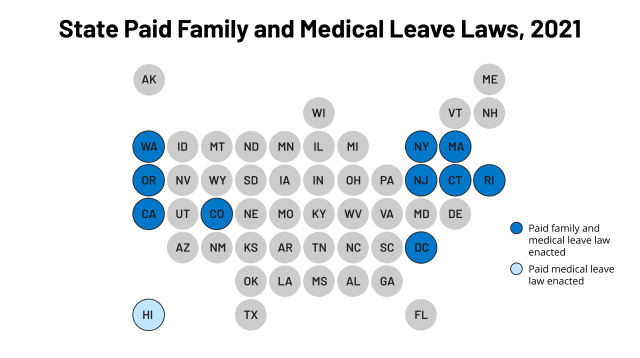Is Your State Enforcing Laws on Paid Family Medical Leave?
The issue of paid family medical leave (PFML) is gaining traction in workplaces, drawing the attention of both employers and employees. Established by Congress in 1993, the Family and Medical Leave Act (FMLA) provides job-protected leave for qualifying circumstances, although it does not mandate paid leave. Statistics demonstrate the importance of PFML, with 47% of leaves taken within a 12-month period relating to family caregiving. Still, access to paid family leave is limited, particularly for low-wage workers.
A patchwork of PFML laws has emerged over the past two decades, with the District of Columbia and 21 states introducing legislation demanding or permitting employers to provide paid family and medical leave. Mandatory PFML laws have been established in 13 jurisdictions, including California, Connecticut, Colorado, Delaware, the District of Columbia, Maine, Maryland, Minnesota, Massachusetts, New Jersey, New York, Oregon, Rhode Island, and Washington, with varied funding mechanisms. Voluntary PFML laws are in effect in eight states: Alabama, Arkansas, Florida, New Hampshire, Tennessee, Texas, Vermont, and Virginia.
Managing the intricacies of these PFML laws can be overwhelming for employers. It’s essential to stay informed about the specific legislation within your state. In a state like California, for example, employees are eligible to get eight weeks of paid family and medical leave. Knowing how to contact PFL in case of queries or requests for assistance is important. One option for contact is through utilizing eddcaller.com, which offers services to help you get in touch with the Paid Family Leave representative with minimal wait, ensuring you have the most up-to-date information on Paid Family Leave benefits. This ensures your compliance with the law and protects your employees’ rights.
